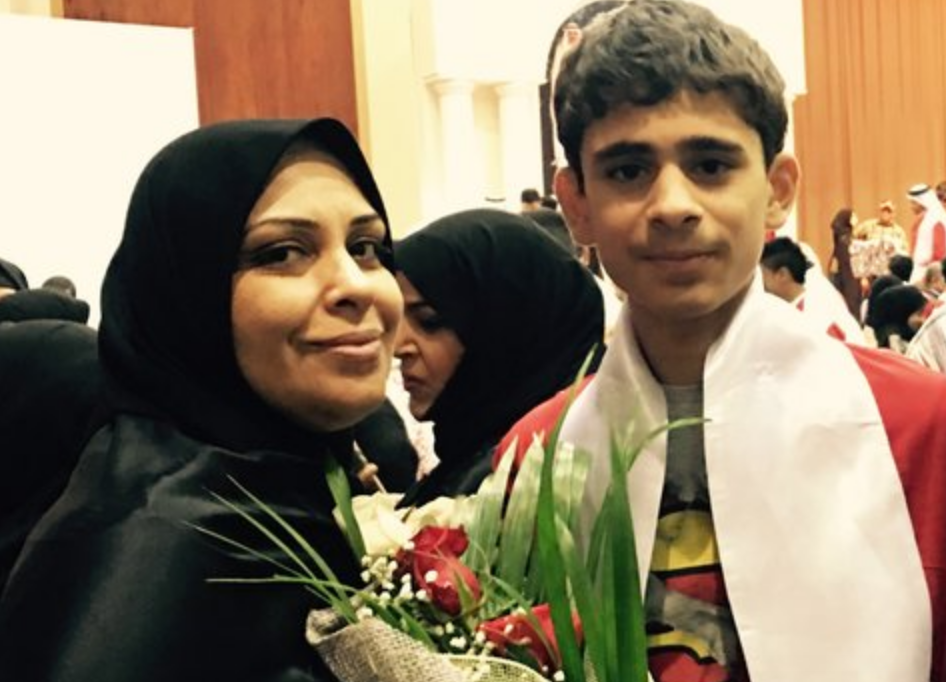Amid increasing repression of domestic civil society, the Government of Bahrain has stepped up its reprisal campaign against exiled human rights activist Sayed Ahmed Alwadaei, the Director of Advocacy for the London-based Bahrain Institute for Rights and Democracy (BIRD). In recent months, Bahraini authorities have repeatedly targeted four different members of Sayed Ahmed’s family with arbitrary judicial harassment intended to punish him and suppress his continued human rights work.
In October 2017, Bahrain convicted three members of Sayed Ahmed’s family in an unfair show trial. Hajer Mansoor Hassan, Sayed Nizar Alwadaei, and Mahmood Marzooq Mansoor, who are respectively Sayed Ahmed’s mother-in-law, brother-in-law, and cousin, were charged with placing a “fake bomb” on a public road. All three received three-year prison terms under Bahrain’s anti-terrorism law, while Mahmood received an additional six-week sentence and 100 Bahraini Dinar fine for allegedly possessing of a dagger. That December, the appeals court upheld their sentences. While in custody, Sayed Ahmed’s family members were subjected to torture and ill-treatment. Mahmood and Sayed Nizar were beaten; Sayed Nizar was stripped and threatened with sexual assault; and Hajer was forced to remain standing under hours-long interrogation until she collapsed and had to be taken to the hospital. BIRD reports that Hajer’s health has continued to deteriorate in the Isa Town women’s prison and on 22 March 2018 she was rushed to the hospital after launching a hunger strike to protest the facility’s abusive detention conditions.
Bahrain’s harassment of the Alwadaei family has only increased in an effort to penalize Sayed Ahmed’s continued work. As BIRD first reported in November 2017, Bahrain sentenced Sayed Ahmed’s brother-in-law, Sayed Nizar, to a further three years in prison in a separate trial based on identical charges of planting a fake bomb. The sentence was upheld in February 2018, raising his total prison term to six years. Then, on 26 March 2018, Bahrain’s Fourth High Criminal Court sentenced Sayed Nizar to an additional seven years imprisonment for allegedly setting fire to a Ministry of Interior (MOI) vehicle with Molotov cocktails. As a result of these three unfair trials, Sayed Nizar is now serving a total of 13 years in prison.
Bahraini authorities have also targeted Sayed Ahmed’s wife, Duaa Alwadaei. On 21 March 2018, a Bahraini court convicted and sentenced Duaa in absentia to two months in prison for allegedly insulting a public officer. The trial followed Duaa’s arbitrary detention and interrogation at Bahrain International Airport in October 2016, along with her young son, Sayed Yousif, in retaliation for Sayed Ahmed’s participation in a protest in London. When asked for the United States’ position on the charges against Duaa, a spokesperson for Department of State scoffed at the absurdity of the allegations and strongly urged the Bahraini government “to abide by its international obligations and commitments to respect human rights and fundamental freedoms, and that includes the freedom of expression.”
Throughout these blatant attacks on the Alwadaei family, Bahrain’s state-sponsored human rights and oversight institutions have entirely failed to address the government’s abuses. To the contrary, on 25 March 2018, the National Institution for Human Rights (NIHR) issued a statement attempting to discredit the reports from BIRD and Hajer Mansoor Hasan concerning her deteriorating health in Isa Town Prison. The NIHR, which is meant to be an independent watchdog, cited only the MOI – the security body directly responsible for detaining and abusing Hajer and Sayed Ahmed’s other relatives. It went on to accuse Sayed Ahmed himself of terror offenses related to his human rights activism. Moreover, Americans for Democracy & Human Rights in Bahrain (ADHRB) and BIRD have repeatedly engaged on these cases with the MOI Ombudsman’s Office, which was established to address reports of police wrongdoing, but the mechanism has consistently declined to investigate the evidence of abuse in these cases. Though in November 2017 the Ombudsman’s Office explicitly conceded to Sayed Ahmed that “there was clear evidence of a criminal act” perpetrated by MOI personnel against his brother-in-law Sayed Nizar, it refused to the release its findings and later recanted the admission. This behavior is typical of the Bahraini oversight bodies, which lack the necessary independence from the government to effectively carry out their mandates and often directly obfuscate human rights violations and suppress abuse allegations.
The escalating reprisal campaign against Sayed Ahmed and the Alwadaei family follows a trend of increased repression targeting activists, human rights defenders, and journalists inside and outside Bahrain. Bahraini authorities must adhere to their international commitments to uphold fundamental freedoms and facilitate, rather than suppress, independent civil society. The international community, and particularly Bahrain’s close partners in the United States and United Kingdom, must push the kingdom to immediately release the family members of Sayed Ahmed Alwadaei and drop all arbitrary charges against them.
Monica Zuraw, Advocacy Intern





